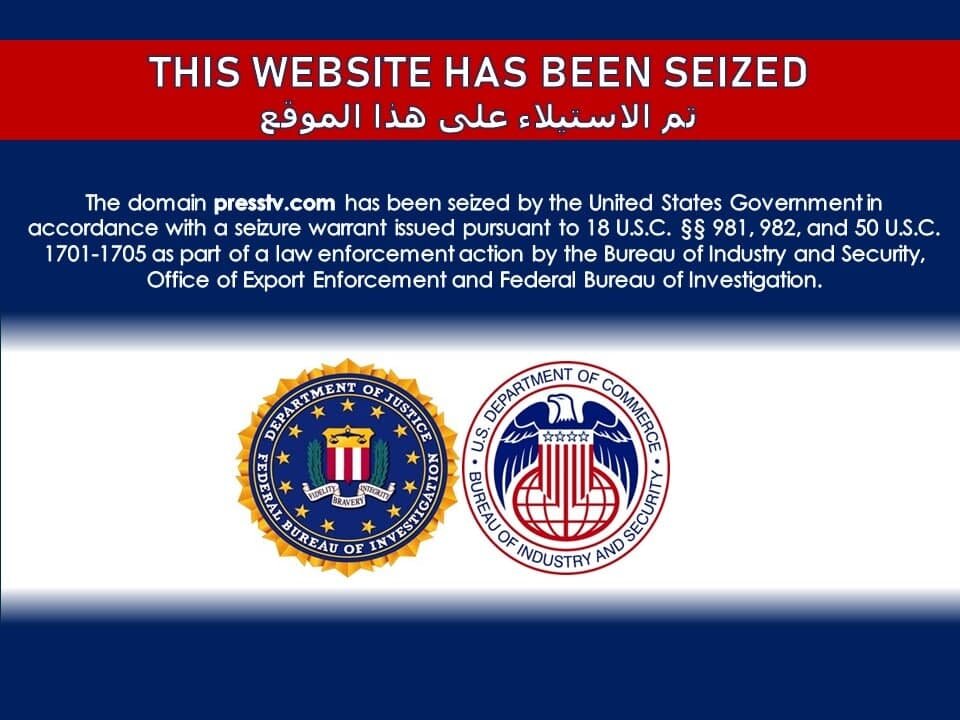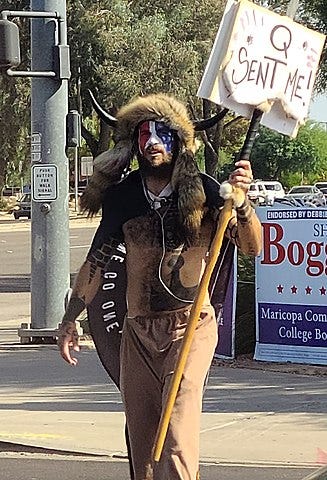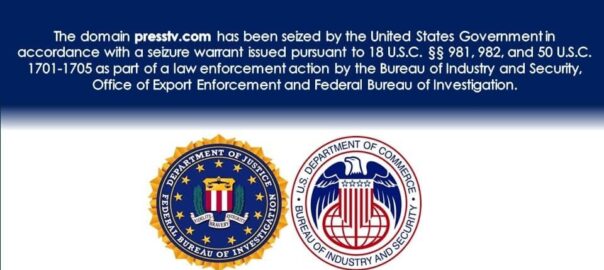By Kent R. Kroeger (Source: NuQum.com; June 28, 2021)

DUBAI, June 22 (Reuters) — The U.S. Justice Department said on Tuesday it seized 36 Iranian-linked websites, many of them associated with either disinformation activities or violent organizations, taking them offline for violating U.S. sanctions.
Several of the sites were back online within hours with new domain addresses.
Writer’s note: It should be acknowledged that the websites blocked by this U.S. action were on servers owned or controlled by U.S. companies — hence, a violation of U.S. sanctions against Iran.
__________________
There was a time when another country — the Soviet Union — had the genuine ability to, for all practical purposes, destroy my country in an all-out nuclear war. [That ability, in what is now Russia, still exists today — but somehow the threat doesn’t seem as palpable as it did before the downfall of the Soviet Union.]
The Soviet Union was a legitimate superpower, hostile to the U.S. and its allies, and armed with around 5,000 nuclear warheads in the late 1970s (with a good number pointed directly at the U.S. mainland).
As a teenager at the time in Cedar Falls, Iowa, I was able to connect my Heathkit shortwave radio receiver to a 120-foot antenna running in a slope from my bedroom window to an old ceramic insulator attached to a pole at one end of my family’s clothes line.
Thin strips of colored tape identified frequencies where I could listen to worldwide radio broadcasts of stations such as the BBC’s World Service, Deutsche Welle (West Germany), Radio Peking, Radio Havana, Voice of the Arabs (Radio Cairo), Radio Berlin (East Germany), Radio Budapest, and last, by far from least, Radio Moscow.
I would get chills hearing the vibraphone intro to the Radio Moscow newscasts, a tune (I think it was called “Moscow Nights”) that was slow, sweet and oddly melancholy. [Regrettably, the Gorbachev-era would replace that charming interstitial with music that sounded like the theme song from a forgettable 1980s ABC crime drama. In retrospect, that was the first clear sign the Soviet Union was on its last legs.]
Some of the broadcasts were in English, but most of the them were in languages I couldn’t understand. But it didn’t matter. It was the thrill of hearing something far away (and slightly forbidden) that made me listen to that radio for hours on humid summer nights, long after my family had gone to bed.
Listening to Radio Moscow was my feeble, teenage attempt at defiance at a time when U.S.-Soviet relations seemingly were getting worse heading into the Reagan-era of American politics.
But it was more than defiance. I honestly believed it was my right (even civic duty) to hear news and opinions from the perspective of other countries — especially our “enemies.”
And it wasn’t that I found Radio Moscow more informative or trustworthy — quite the opposite, its news stories were often brazenly optimistic:
April 4, 1980: “…the Supreme Soviet Presidium ratified the treaty between Afghanistan and the Soviet Union on the conditions for the temporary stay of a limited contingent of Soviet forces in Afghanistan territory.” [Note: The size of the Russian occupation force would peak around 65,000 and they didn’t leave until 1989.]
or comically understated:
April 29, 1986: “An accident has occurred at the Chernobyl nuclear power plant as one of the reactors was damaged. Measures are being taken to eliminate the consequences of the accident.”
But that was part of Radio Moscow’s charm…and its importance.
Why would an American not want to know the mindset of an adversary? How could anyone honestly call themselves informed without knowing the official views of other governments?
“It’s disinformation!…It’s propaganda!,” is the cry we hear now from both the left and right of the political spectrum — particularly with respect to Iran or Palestinians.
Even if the Press TV (Iran) or al-Masirah TV (Yemen Houthis) or Palestine-Al Youm websites were merely publishing official propaganda, why would I want the U.S. government, or a private U.S. company, to decide for me whether I can read or hear their content?
The thing I remember about the Cold War…
One of distinctive aspects of the U.S. government during the Cold War was its irrepressible sense of superiority and invincibility.
We had, after all, soundly beaten the fascists in Germany and Japan in World War II (OK, I realize the Soviet Union was a rather important part of that victory) and economically we were second-to-none in the decades immediately following the war.
From a U.S. citizen’s perspective, while we understood our homes and city could be evaporated by a single Soviet thermonuclear device, there was a Dean Martin-like boozy confidence among us — at least until the Vietnam War and Watergate— that the American ideology of ‘freedom and capitalism’ were intrinsically superior to authoritarianism and communism.
We may have been afraid of the Soviet war machine, but we were not afraid of the Soviet way of life. It was inferior and we knew it. My mom and dad worried more about inflation than anything the Soviet Union could do to them.
Evidence of our nation’s confidence is how it addressed Soviet propaganda on platforms such as Radio Moscow. Though the Kremlin may have jammed Western broadcasts by radio services like the Voice of America and the BBC, we did not return the favor.
It wouldn’t have been cheap, but we could have done it.
According to Mark Winek, an expert on Cold War-era propaganda efforts, it demonstrated the West’s confidence that we didn’t feel the need to jam Radio Moscow in response to Soviet jamming. In contrast, the Soviets had every reason to fear Western influence:
“While Radio Moscow’s signals were rarely jammed by other nations, the Soviet Union actively jammed the broadcasts of Western stations such as the BBC and the Voice of America. The purpose of this was to prevent Soviet citizens from being able to tune in the Western broadcasters, fearing ‘Western cultural infiltration’. Indeed, they may have had cause to worry: the Voice of America estimated 8 million Soviet citizens listened into Western broadcasts.”
That is the difference between a confident, secure country and one that is not.
How times have changed.
At present, I see my country becoming fragile and increasingly paranoid towards anyone who says something mean — particularly against our two establishment political parties. We are now so delicate, our enemies aren’t just somewhere in some faraway desert or arctic tundra, they are among us. They might be one of your work colleagues or even in your own family. We now believe this so deeply that few Americans blinked when President Joe Biden asked them this month to turn these suspected ‘domestic terrorists and extremists’ into the nearest law enforcement or FBI office.
At least in the Cold War, we feared actual scary things like 15-megaton thermonuclear warheads and bureaucratic group-think. Today, some Americans turn into a mush puddle at the sight of a bare-chested man wearing a furry hat with horns and holding a Qanon sign.

We are not the same country that once stood nose-to-nose with the Soviet menace without blinking. Today, our current administration openly prosecutes a publisher who published whistleblower document leaks regarding U.S. war atrocities (Julian Assange) and recent administrations have unapologetically monitored the communications of journalists deemed hostile (i.e., published administration leaks).
The day the U.S. Department of Justice shut down the Press TV website, the stories on its home page included stories on:
- Iran’s military top brass expressing a willingness to cooperate with President Biden (the kind of story that makes state-run news agencies relevant to foreign diplomats and journalists),
- The Taliban making gains in Afghanistan (undeniably true),
- Iran’s President-elect receiving congratulatory calls from world leaders (also undeniably true),
- and a feature on Israeli settlers attacking Palestinians in Sheikh Jarrah (a fact the Biden administration has acknowledged).
Is there propaganda on Press TV’s web pages? Of course. It is a state-run news organization after all. Does it print misinformation and promote conspiracy theories on the Qanon-level of a cadre of U.S. elites running a child slavery ring out of a pizza parlor on Connecticut Avenue? Nothing I’ve ever seen on its pages has come close to being that far removed from the sanity train.
Press TV is the English-language service of the Islamic Republic of Iran Broadcasting, the Iranian government’s news organization — which includes the Tehran-based internet radio station World Service 4 (which is also being blocked by the U.S. government).
I recently listened to a story on World Service 4 (before it was blocked) in which the Iranian government accused U.S. sanctions of directly causing unnecessary COVID-19 deaths among Iranian civilians. I don’t necessarily agree with that statement, but why would the U.S. government prevent me from hearing or reading that? Because I might believe it? That is what a government does when it is insecure about its own honesty. That is the same frame of mind behind the Iranian government suppressing Western ideas about women’s rights or press freedom. They do it because they are insecure.
It should be beneath our country to do such a thing — particularly against such a minor threat to the U.S. as Iran.
They all do propaganda — the trick is knowing how to separate the facts from the b.s.
On our own home front, we must dispense with the grammar-school-level belief that U.S. news organizations are objective and bound solely by the “truth” when crafting their daily headlines and newscasts. Most American journalists serve their economic interests as well as their social and economic class. The “truth” comes somewhere after that.
I.F. Stone famously wrote that “all governments lie.” The same can be said for all news organizations. They don’t do it all the time — not even most of the time — but when they do, they will bamboozle you like a cheating lover.
In a country where Facebook and Google appear to be suppressing news stories and social media conversations related to the generic drug Ivermectin, an antiparasitic drug with known antiviral uses and which has shown enough promise as a COVID-19 treatment to warrant the recent start of large-scale clinical studies on its effectiveness, it is myopic to suggest U.S. news and social media organizations don’t peddle in propaganda too. Sometimes propaganda is not in what is said or written, but in what is not said or written.
So, in the end, I would rather take my chances with my own capacities and limitations. Which is to say: I don’t need the U.S. government protecting me from Iranian or anyone else’s propaganda. Over 40 years of digesting content from the U.S. news media has made me a bit of an expert in picking out fact from nonsense.
- K.R.K.
Send comments to: kroeger98@yahoo.com
